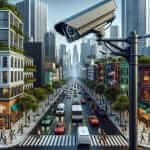“The impact of space tourism on scientific research” is a topic that has sparked considerable debate in recent years. While it doesn’t frequently appear in IELTS Writing Task 2 questions, understanding the nuances of this issue can equip you with valuable vocabulary and ideas for a range of essay prompts related to technology, the environment, and societal progress.
Here are some potential IELTS Writing Task 2 questions that touch upon this theme:
- Some people argue that space tourism is a waste of money that could be better spent on scientific research. To what extent do you agree or disagree?
- Space tourism is becoming increasingly common. What are the potential benefits and drawbacks of this trend?
- Do the advantages of space exploration outweigh the disadvantages? Discuss both sides and give your opinion.
Sample Essay: Analyzing the Impacts of Space Tourism
Let’s delve into a sample essay addressing the first question:
Question: Some people argue that space tourism is a waste of money that could be better spent on scientific research. To what extent do you agree or disagree?
Essay:
The burgeoning space tourism industry has ignited a debate about the allocation of resources, with some advocating for prioritizing scientific research over what they perceive as frivolous space travel. While I acknowledge the allure of funding scientific endeavors, I firmly believe that space tourism possesses the potential to significantly contribute to scientific advancements in the long run.
Firstly, the resources poured into space tourism are not simply lost in the cosmos. They directly fuel technological innovation and infrastructure development. The drive to make space travel safer, more affordable, and more accessible for tourists necessitates breakthroughs in materials science, propulsion systems, and life support technologies. These advancements can have far-reaching implications for various fields on Earth, from medicine to energy production.
Secondly, space tourism can act as a powerful catalyst for scientific research. The unique perspective offered by space travel can inspire new research questions and provide unparalleled opportunities for observation and data collection. For instance, the effects of microgravity on the human body, plant growth, and material properties can be studied more effectively in space, potentially leading to groundbreaking discoveries.
space-tourism-impact-on-scientific-research|Space Tourism Impact on Scientific Research|A spacecraft orbiting Earth, with a backdrop of stars and a blue planet, representing the potential of space tourism to advance scientific research.
However, it is crucial to acknowledge the potential drawbacks of prioritizing space tourism. The environmental impact of space launches and the potential for space debris are legitimate concerns. Moreover, the exorbitant cost of space tourism could exacerbate existing inequalities if not managed responsibly.
In conclusion, while allocating resources solely to scientific research might seem like a prudent approach, dismissing space tourism entirely would be shortsighted. By fostering technological innovation, inspiring research, and expanding our understanding of the universe, space tourism has the potential to become a valuable asset in the pursuit of scientific progress. It is imperative to strike a balance between funding fundamental research and supporting initiatives like space tourism that can indirectly contribute to scientific advancement.
(Word count: 285 words)
Notes for Writing
- Structure: This essay follows a balanced approach, acknowledging both sides of the argument before presenting a clear opinion.
- Vocabulary: The essay utilizes topic-specific vocabulary such as “space tourism,” “scientific endeavors,” “technological innovation,” “infrastructure development,” “life support technologies,” “catalyst,” “microgravity,” “exorbitant cost,” and “space debris.”
- Grammar: The essay employs a variety of grammatical structures, including complex sentences, conditional clauses, and passive voice, to demonstrate grammatical range and accuracy.
Key Vocabulary
- Burgeoning (adj.) /ˈbɜːrdʒənɪŋ/: Expanding or growing rapidly.
- Frivolous (adj.) /ˈfrɪvələs/: Not having any serious purpose or value.
- Allure (n.) /əˈlʊr/: The quality of being powerfully and mysteriously attractive or fascinating.
- Fuel (v.) /ˈfjuːəl/: To sustain or stimulate (an activity or process).
- Breakthrough (n.) /ˈbreɪkθruː/: A sudden, dramatic, and important discovery or development.
- Catalyst (n.) /ˈkætəlɪst/: A person or thing that precipitates an event.
- Exorbitant (adj.) /ɪɡˈzɔːrbɪtənt/: (of a price or amount charged) unreasonably high.
- Space debris (n.) /ˈspeɪs ˈdeɪbriː/: Defunct artificial objects in space that pose a risk to operational spacecraft.
Conclusion
This essay provides a framework for approaching IELTS Writing Task 2 questions related to space tourism and its impact on scientific research. By utilizing relevant vocabulary, presenting a well-structured argument, and demonstrating grammatical accuracy, you can effectively articulate your thoughts on this complex and evolving topic. Remember to practice writing similar essays on other potential questions to strengthen your skills further.


